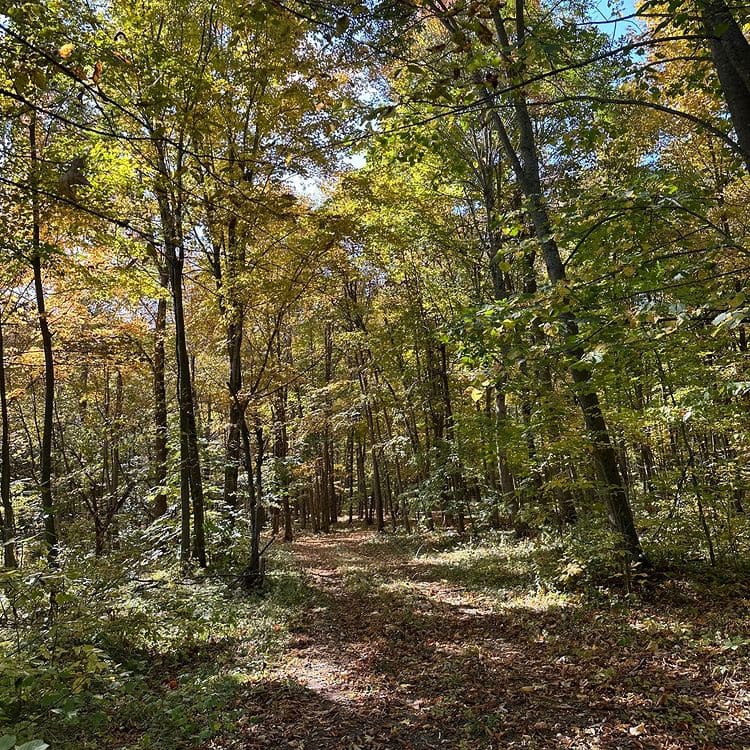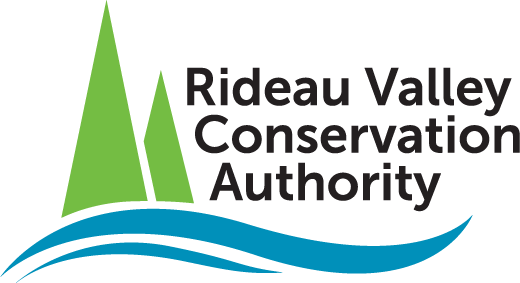A broad swath of sensitive wetlands, forests and meadows will be protected in perpetuity thanks to a generous land donation near Hutton Marsh this fall.
The private land donation from Bill and Heather Griffith will be rolled into the RVCA’s abutting Motts Mills Conservation Area, adding 215 acres of wetland, 70 acres of mature forest and 75 acres of meadows suitable for species at risk like bobolink and butternut. It will also protect another 2.4 km of natural shoreline in perpetuity.
It's the second time the Griffiths have donated land to the RVCA. The first donation in 2014 expanded Motts Mills Conservation Area from a mere 3.5 acres into an important 200-acre wetland conservation site. Now the Griffiths have contributed nearly all of their remaining land, reserving just 30 acres for their home and hobby farm.
“Repeat donations, especially sizeable ones like this, really speak to the value of the program for landowners,” said Dan Cooper, Director of Conservation Lands at the RVCA. “This donor gets the double benefit of receiving a fair-market tax receipt for their property as well as peace of mind knowing the land will be preserved in its natural state for future generations.”
The donation was processed through the federal Ecological Gifts program, which further boosts available financial and tax benefits for the donor.
 The expanded conservation property is critical to the RVCA’s ongoing efforts to rehabilitate Hutton Marsh to a more natural state. RVCA has been working with the Hutton Marsh Steering Committee, local landowners and stewardship groups since 2011 to improve the marsh by adding open water ponds and channels to increase biodiversity and to help naturally manage water levels in conjunction with the Hutton Marsh dam.
The expanded conservation property is critical to the RVCA’s ongoing efforts to rehabilitate Hutton Marsh to a more natural state. RVCA has been working with the Hutton Marsh Steering Committee, local landowners and stewardship groups since 2011 to improve the marsh by adding open water ponds and channels to increase biodiversity and to help naturally manage water levels in conjunction with the Hutton Marsh dam.
RVCA and its charitable partner the Rideau Valley Conservation Foundation (RVCF) actively seek suitable land donations to help preserve the watershed’s natural infrastructure that protects against flooding, erosion and climate change impacts. Donated properties can also be used to protect and create critical wildlife habitat at a time when global biodiversity is on the brink of collapse.
The Griffith property is a perfect example: staff have observed endangered species such as monarch butterflies, bobolink, Eastern meadowlark, Blanding’s turtle and butternut trees on site. The site also contains habitat for other species at risk such as snapping turtles, the Eastern wood pewee, golden-winged warbler and the least bittern.
“Land donation is such a win-win,” Cooper said. “Families can unlock the value of their property while protecting its natural legacy. And we can help the property reach its natural potential to support a thriving, functional watershed.”
The RVCA and RVCF currently own or protect more than 8,200 acres of critical green infrastructure, much of it acquired through private donations. To learn more about the benefits of land donation and how you can get involved visit https://www.rvcf.ca/ways-to-give/land-donation



